WHEN leading Asia hotel chain Six Senses decided it needed an outpost in Europe, to show off its incredible eye for detail and how to look after guests in the most sustainable way, it didn’t opt for the obvious places like the south of France or the Balearics… even a key European city.
The group, which launched in Thailand and Vietnam in 2004, unearthed an extraordinary 19th century wine estate on the bend of the Douro river some 100 km inland from the city of Porto.
By acquiring this obscure family-run vineyard and hotel they could quietly go about their business turning it into probably Europe’s most beautiful rural escape and with a price tag to match, it now being Portugal’s most expensive hotel.
With an ethos geared around local organic produce, sustainability and wellness, when their first hotel in Europe opened in 2015, the group rapidly stole a march on this rapidly growing inland rural sector of tourism.
Since adding the obligatory statement hotel in Ibiza (see Olive Press review) and a spa in Marbella, they have continued to grow globally into spots like the Maldives, India, and now even America. In Europe they also count on Courchevel, Crans and Rome.
And while I’ve only previously visited Ibiza, the arrival at the Six Senses Douro Valley is so breathtaking it’s unbelievable.
Low-key luxury at its best, it is anything but grand, particularly if you arrive via the bottom road close to the river, along an ancient cobbled track lined with rows and rows of vines from a string of local estates.
The hotel eventually comes into view surrounded by woodland and a sea of vines clamped to every available terrace within five kilometres of the place.
It’s something of a pile but fairly in keeping with the local vernacular… as you’d expect from a 200-year-old bodega.
Story continues below photos…
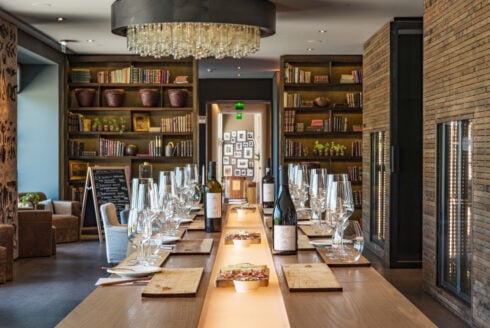
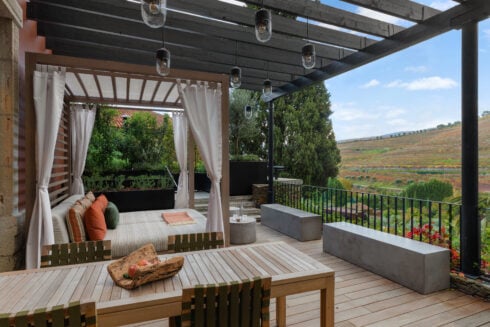
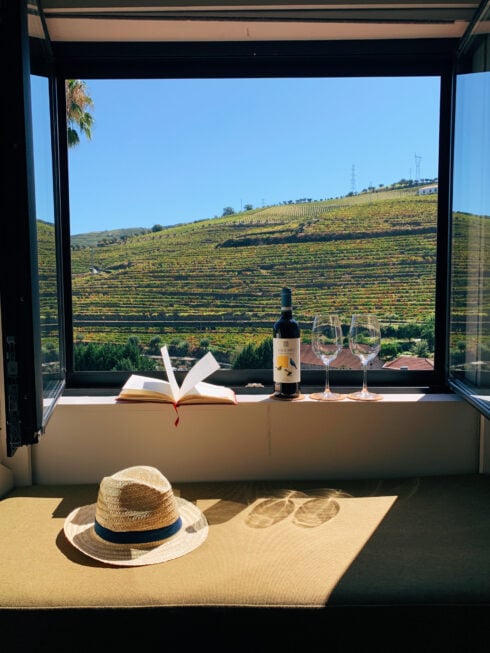
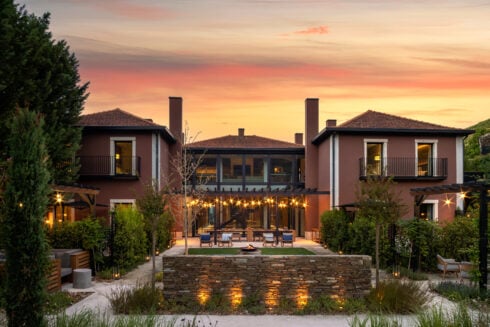
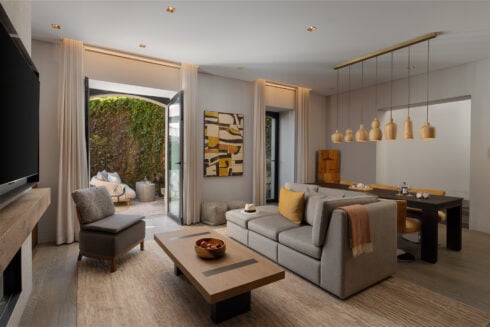

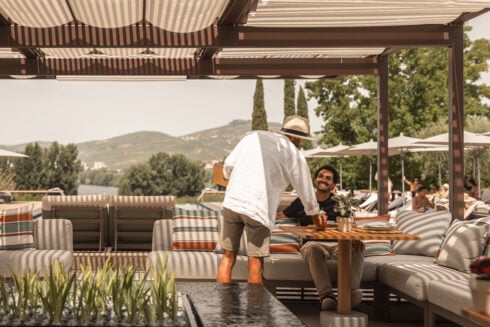
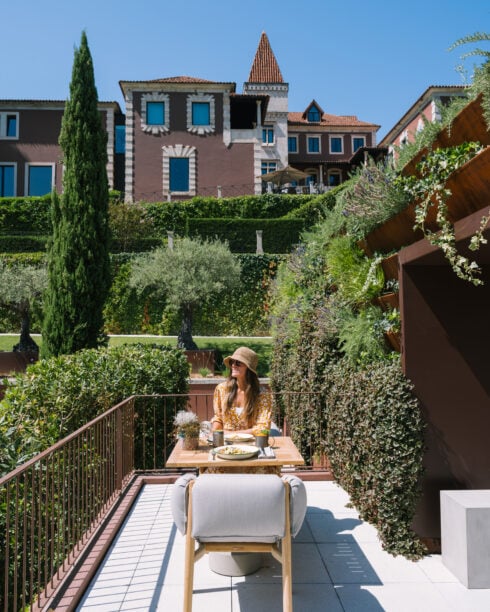
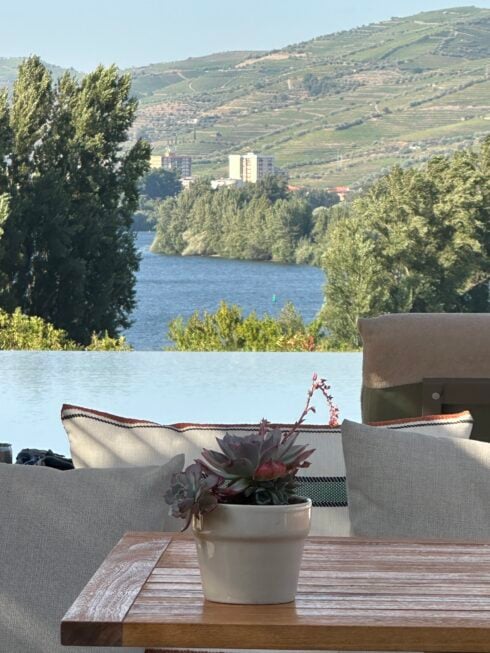
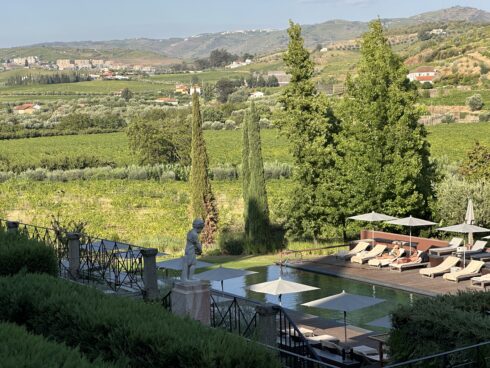
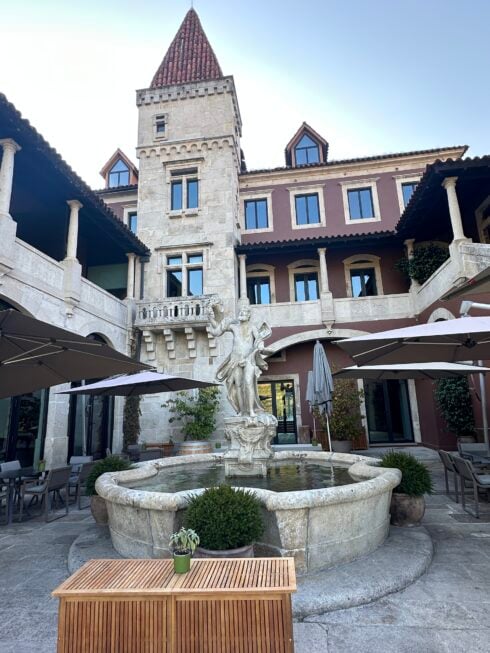
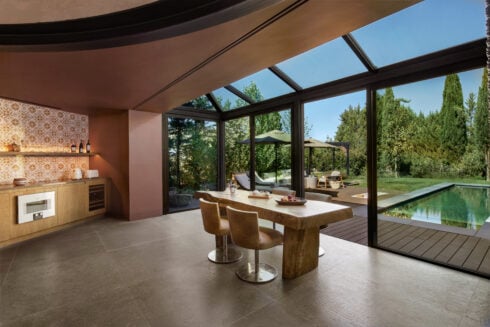
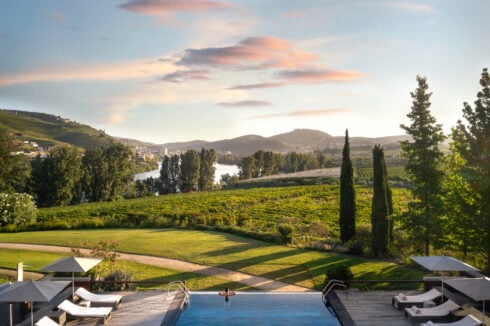
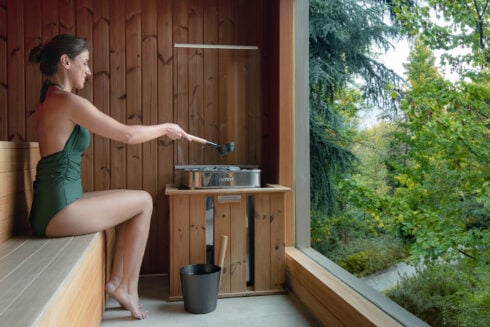
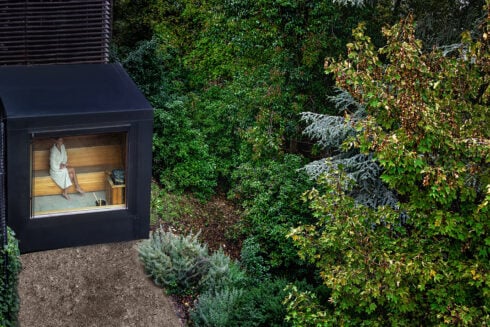
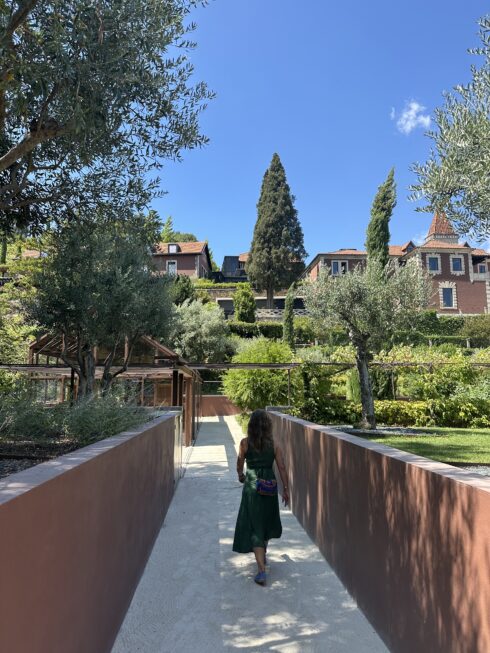
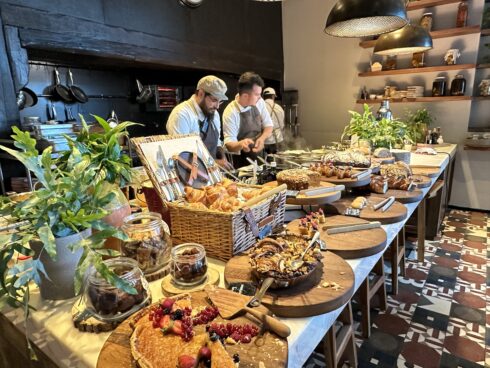
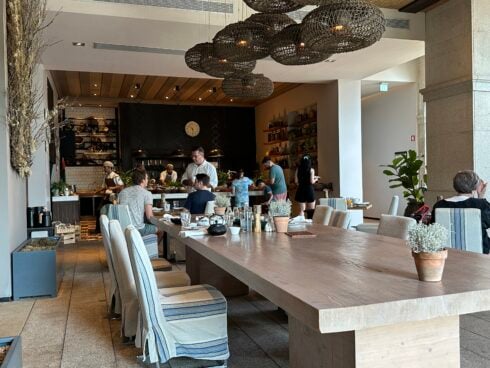
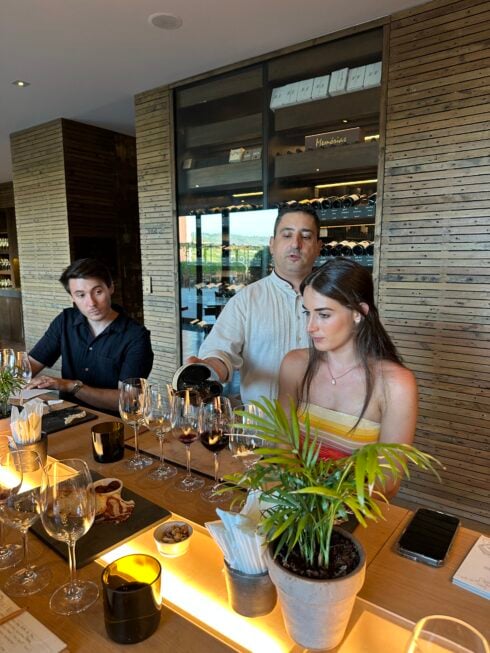
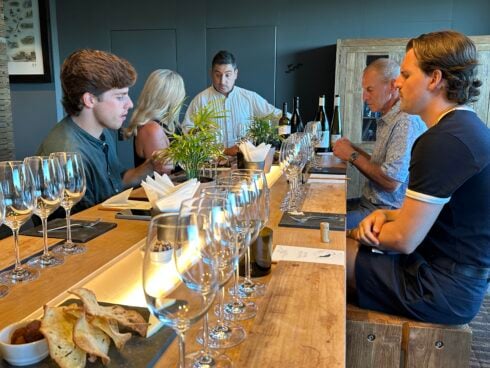
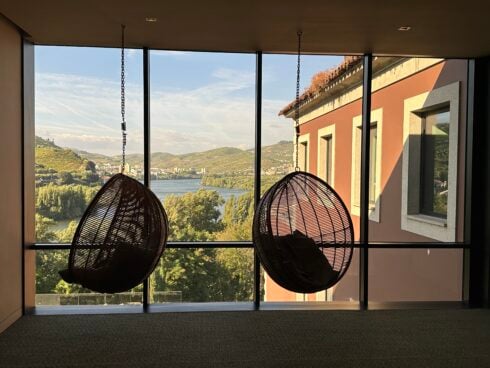
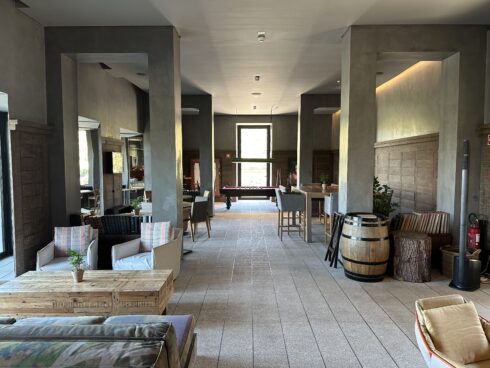
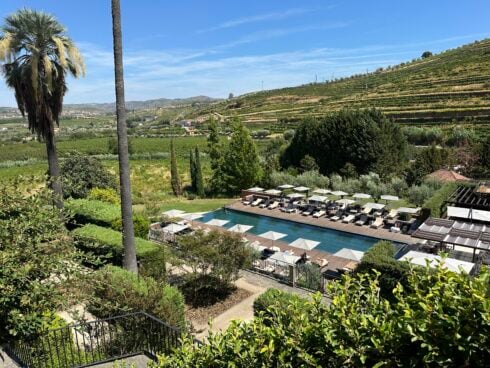
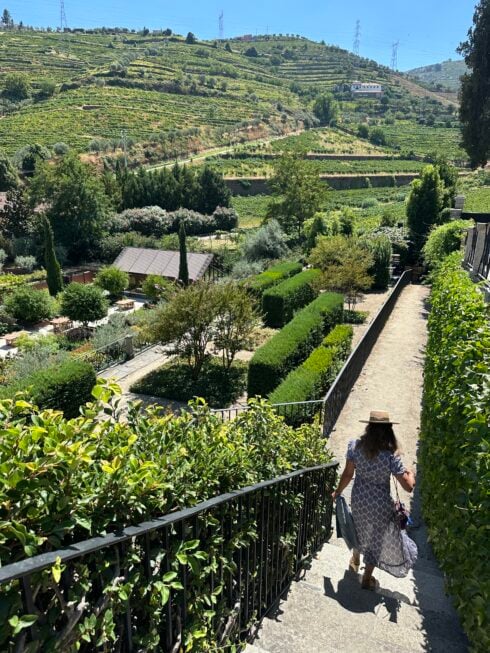
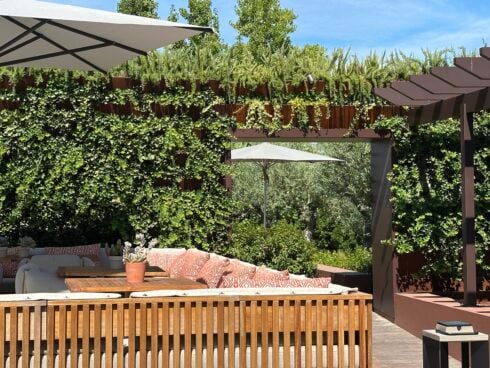
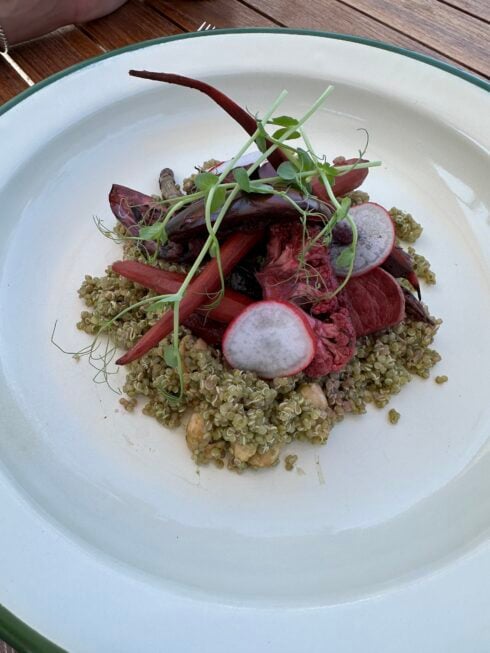
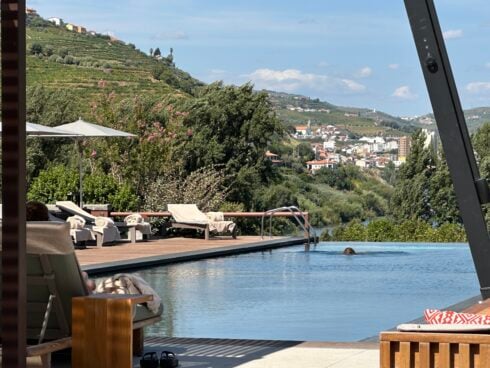
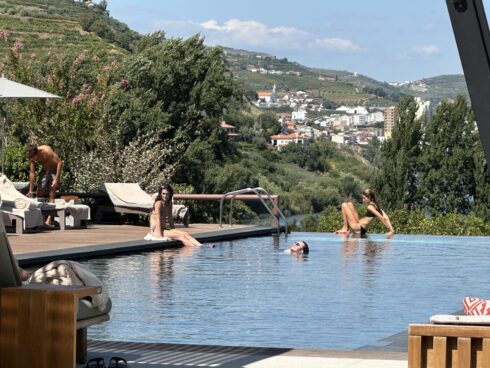
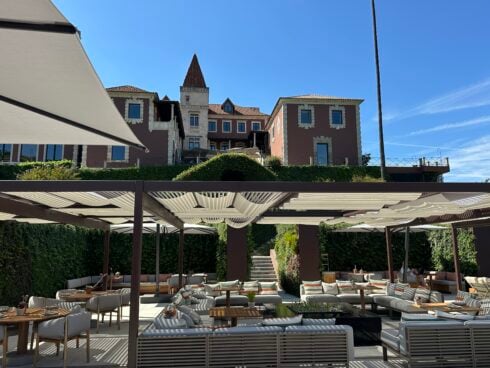
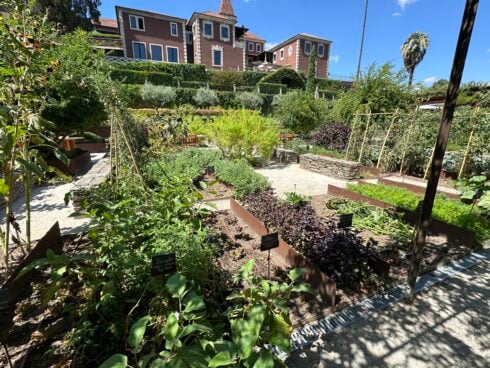
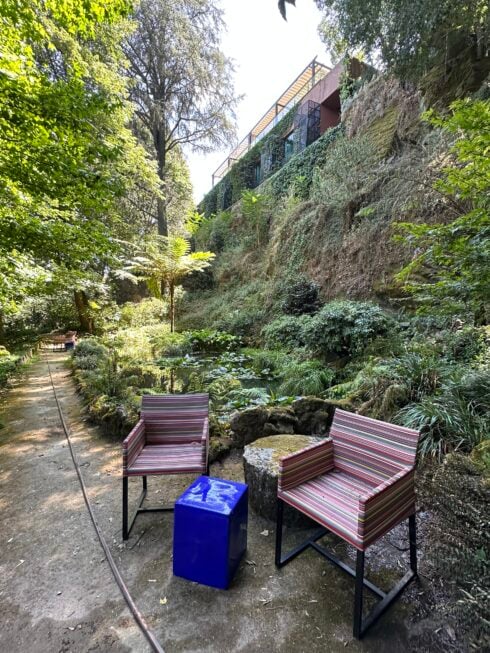
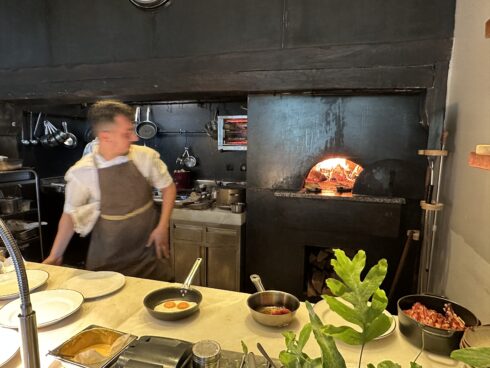
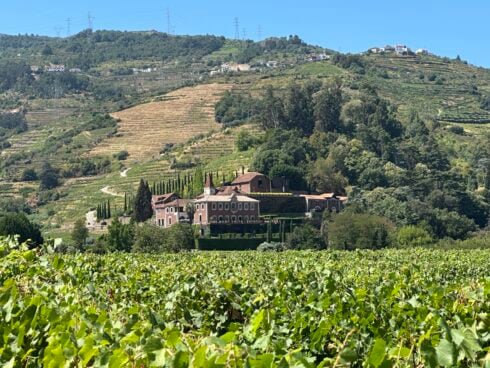
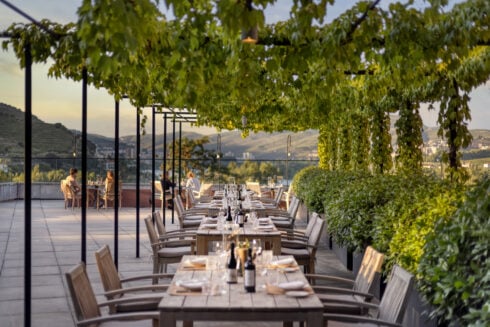
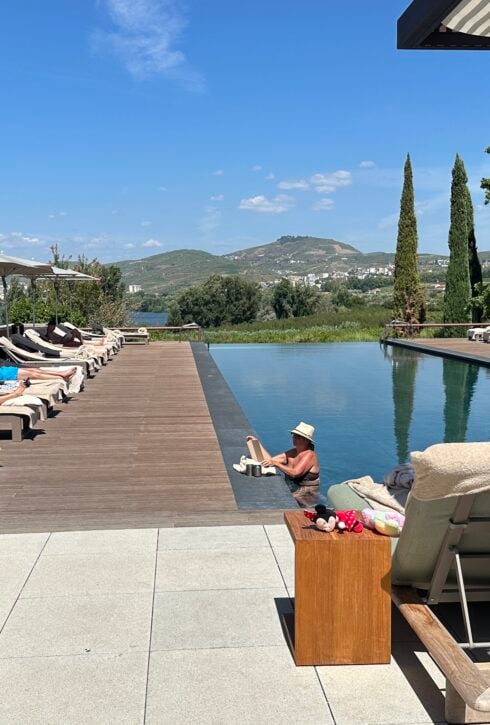
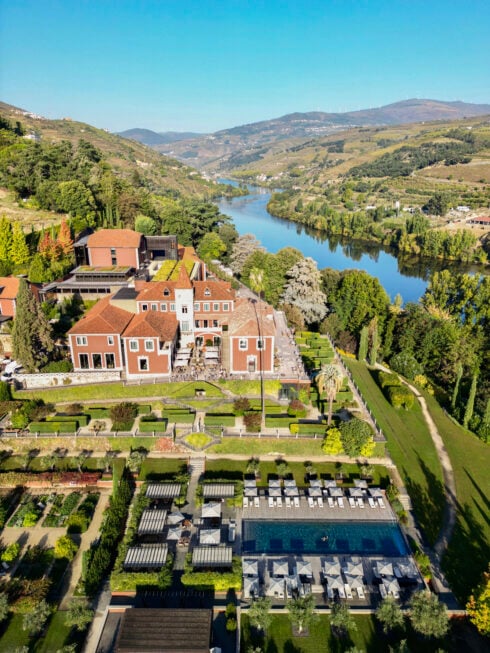
There’s a pointed stone steeple, a charming Italianate loggia, stone pillars and unusual stone windows that turn out to be more recently installed. The burgundy walls match the wine-making tradition, while the local Portuguese pantiles complete the composition.
The understated sense of arrival is accentuated by our receptionist David, now in his fourth year, and carrying an incredible knowledge about the area and wider group which now has 27 hotels around the world.
He tells us a bit about the ancient family, who reluctantly sold up in 2001 to become a boutique hotel that was sadly ‘before its time’, a bit too modern and pricey, by all accounts, for the region, prior to the budget airlines arriving in 2013/14.
Once guided to our suite, which is among the most stunning I’ve stayed at in Europe (more of which later), we head out into the grounds, for this is perhaps, the real key to the success of the place.
Enveloped by a copse of mixed woodland, the wondrous mature gardens cascade down many levels, right down to the river, in fact, where there is a pontoon and naturally paddle boards and other exciting craft ready to be used by guests. (Note to self: next time arrive by river!)
Exploring the woods, then formal gardens is joyous. Each section is divided by myrtle hedges, rusted iron walls clad in ivy or other climbing plants, pleached fruit trees, green walls and lines of rosemary set up high in original horizontal planters.
There are evocative openings into olive groves, vegetable gardens with avocado trees and a more formal garden of pergolas, which gives a sense of both privacy and space. Don’t miss the steps up to a grotto cave where fresh spring water trickles out.
It’s hard to imagine a more natural setting for the swimming pool with the green Douro valley on one side and an entire slope of vines on the other, while the guests who sit around it are, unsurprisingly, among the world’s most successful movers and shakers. Think White Lotus meets Love Island, at least as far as physiques go.
I loved the easy pivot to the pool bar restaurant, just a cat’s swing away, a calming spot awash with sea green and terracotta cushions on natural undyed linen sofas.
The ‘snack menu’ is equally easy, light and minimal with a bent towards healthy eating…they call it the ‘Tasty Stuff’ and it has two types of gazpacho, one a delicious strawberry number with a king prawn tartare sliced up in the middle.
A trio of salads, one from their vegetable garden with grilled pickled carrots, courgettes and almonds is a surefire winner, while the line-caught sea bass ceviche was spicy and prepared to perfection.
The free-range chicken is also a delicious, if slightly scrawny leg, cooked on the grill with a strange sprinkling of local cheese on top.
Portions are extraordinarily small, which no doubt suits the young attractive couples, half of them honeymooners at a guess, who seem to spend most of the day luxuriating by the pool.
The wine tasting, open to all guests and strongly recommended, starts each evening at 6pm – and comes with snacks and a cool wine tasting notebook, plus a superb carved wooden wine map of the region.
It’s highly instructional, and leads nicely on to our evening meal in the main restaurant, which again is style personified thanks to the incredible eye of oddly, an Irish interior designer, now in her mid 80s, based in New York called Clodagh, described as a ‘pioneer of green design’ who found her vocation living in Spain in the 1970s.
So much of what makes the Six Senses Douro wonderful can be put down to her. An extraordinary woman, I love the lamp made of wine bottles and the farm implements on the wall, plus close up photos of terrain. I also love the sauna that looks out at the landscape and the hanging chairs to enjoy the view from the lift shaft lobbies. I literally wouldn’t have minded spending a morning there with a good book.
Next we bowl along into the main restaurant, which is full of natural materials; textiles, wood and stone, all thanks to Clodagh, who utilised hundreds of blown up photos of the finca from years gone by – plus wonderful photos of its owners (grandchildren roller skating, grandma on her mare etc).
The hessian and wooden beam ceiling and blue and white striped lined chair covers sum up the attention to detail.
Also keeping with its wellness philosophy there are lots of vegetarian and vegan dishes, such as grilled ‘hispi’ cabbage – with smoked goat butter, lime pickles, hollandaise and peppers…what a dish ! Succulent, creamy and smoky, all done on the grill.
There are also ‘heirloom’ beets with a coconut labneh and pickles and green strawberries, while seasonal organic asparagus with saffron and lemon was more to my flavour.
Meat eaters were not entirely ignored and there was a splendid hand-chopped pasture fed beef tartare, while the line-caught sea bass and Algarve pink prawns made the table.
Once again, it’s worth mentioning these were no huge American size portions, but minimalist and much more importantly packing flavour.
And finally it was off to our suite, which counted on the most amazing east-facing terrace from where I lay the following morning on a giant day bed marvelling at a wall of vine terraces, literally line after line of bright green tendrils, just weeks, or even days, from being denuded of their grapes in the autumn harvest.
There are so many special touches, such as a secret drawer by the minibar which opens to not just tea bags BUT sachets of fresh tea leaves while at night the fairies leave bottles of fresh water all around. Meanwhile a jar of sea salt and a loofah have been thoughtfully left beside the bath, while all the products are in classic blue and white Portuguese porcelain.
The TV is cleverly hidden by a sliding painting and if there’s anything else you need or don’t understand, an iPad on the wall immediately connects the guest to a live chat system, where you can ask for anything you might need. “I promise you it’s not an AI assistant,” explains David. “So please don’t swear or try and confuse it because it will be one of our team trying to help”
It was this way I found out about the tea drawer but a sign of the times, when I ask for a copy of a British newspaper, the reply was only: ‘We will need to find out how to get one.’ They didn’t.
Finishing on a positive note, the breakfasts are as much as possible, cooked in the wood oven, even including pancakes … which are extraordinary! Fresh plums, crème fraiche and icing sugar. Don’t stay for just a night. Stay for a week, or a month, that is if you’ve got a spare €50,000.
Visit www.sixsenses.com. Rooms start at around €1400 a night.
Click here to read more Olive Press Travel News from The Olive Press.

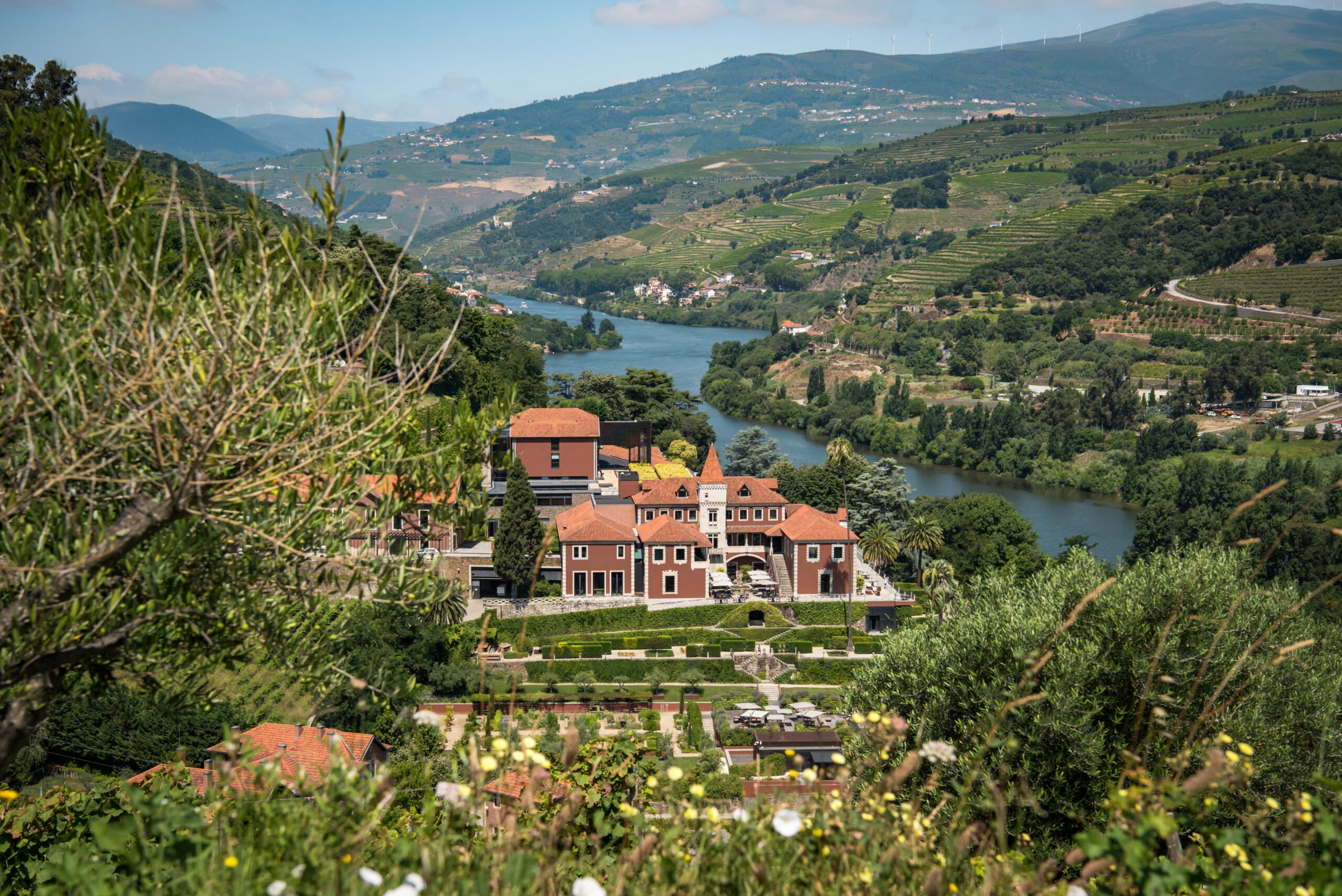

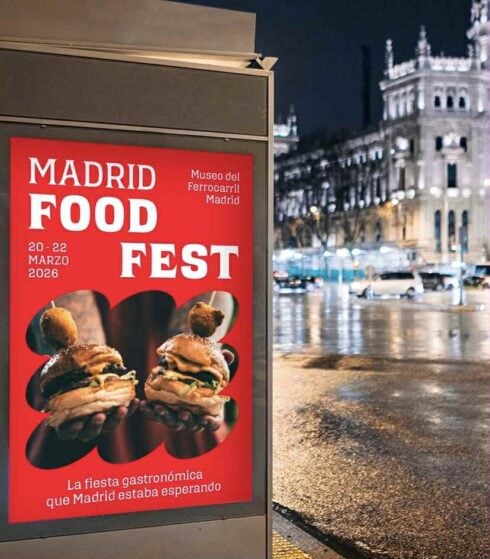
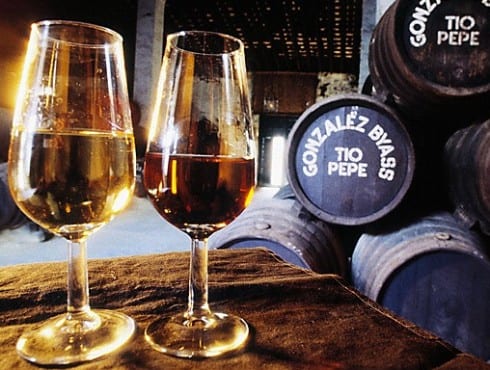
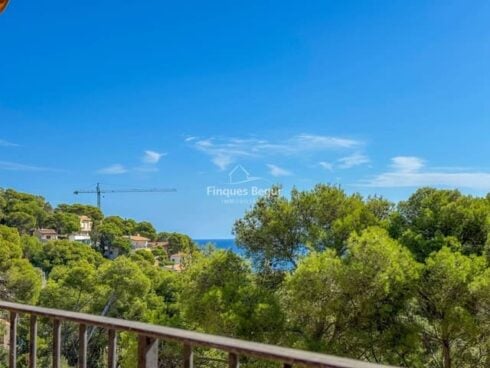



I bet you can’t wait for the 20th Anniversary of the Olive Press (congratulations, by the way, Jon). Sounds a little bit like Paradise, only better. A well timed article in view of the arrangements currently underway to visit Portugal next year, and as I started reading about the delights of what is obviously a very special place, I got to thinking about including a couple of nights there – until I read the final two lines! There’s always a slight chance of ONCE coming to the rescue!
On a more constructive note, no one who has sampled the hospitality found in so many Asian countries will doubt that the transfer to the ideal spot on the Douro sets the standards at a completely new level in Europe.
Hi Mark
Yes, those prices are a little scary, and one of the very few really great perks of being a journalist allows one to sample some of the places that most mortals never get to try.
One of our clients however, mentioned to me, that if you planned it well and got there really early, let’s say 11:30 AM, and ask for a late check out, say 4 to 5 PM, It almost feels like you’re getting two days for the price of one.
It’s still around €750 a day however so you do really need to save up.
What I can say is: it really is a very special place! If you can afford it you really must visit.